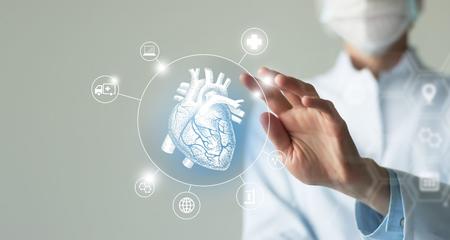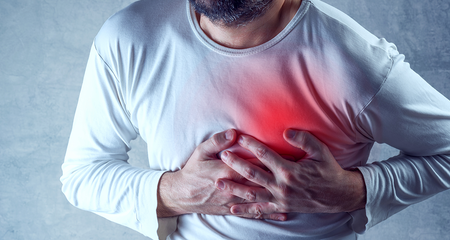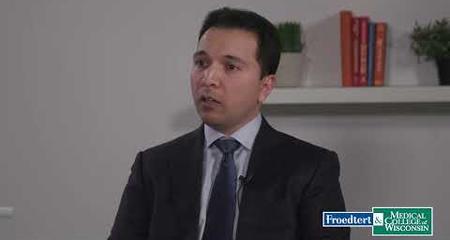Cardiac magnetic resonance imaging (cardiac MRI) uses radio waves, a magnetic field and a computer to create images of your heart. Cardiac magnetic resonance angiography (cardiac MRA) is a type of MRI that looks specifically at the blood vessels. Neither procedure uses X-rays or radiation.
We offer a full range of advanced imaging capabilities. Our capabilities include 3-Tesla (3T) high field strength machines, and two wide-bore MRIs that accommodate larger patients or those who experience claustrophobia in standard-sized MRI machines.
Learn what to expect before, during and after your MRI.
Evaluating Heart and Vascular Conditions with Cardiac MRI
Physicians recommend cardiac MRI for a variety of reasons, but it is especially useful as a noninvasive method to diagnose heart muscle disease, and when detailed images of the beating heart are needed. A cardiac MRI can:
- Detect heart attacks.
- Determine which areas of the heart have sustained damage after a heart attack.
- Provide information about how much damage was done and how much live muscle remains — crucial information when considering appropriate treatment.
- Determine the nature of masses and tumors.
- Evaluate the causes of heart failure and arrhythmias.
- Identify structural heart problems, including congenital heart disease conditions.
- Assess the degree of narrowing or leakiness of a valve and its impact on heart function.
- Expose organs or soft tissue for study that may have been obscured by bones in a CT scan.
- Replace invasive biopsy tests.
- Replace nuclear stress testing (in some instances), requiring no radiation.
Also, cardiac MRI may be used to predict how the heart will respond to treatments for coronary artery disease, such as coronary artery bypass surgery or angioplasty. Some cardiac MRI patients will receive an injection of a contrast medium or dye through a vein before the scan. This dye improves the ability of the MRI machine to capture more detailed images. MRI dye does not have the negative effects on the kidneys like CT contrast can and is often much safer for patients.
MRIs for Patients with Pacemakers and ICDs
Froedtert Hospital and Froedtert Menomonee Falls Hospital are among an elite number of hospitals that can safely perform MRIs of any area of body for patients with a pacemaker/ICD — even older, non-compatible models.
The Cardiac MRI Program follows special protocols for performing MRI scans on adult patients with a pacemaker or ICD. Even if patients have been told they cannot have MRIs with their pacemakers or defibrillators, they should seek a second opinion through the Cardiac MRI program, as many of them have been able to go on and safely have MRIs with us. In fact, 90 percent of referred patients are eligible for MRI.
Through the Cardiac MRI Program:
- Specialists work with referring physicians to screen patients and help ensure the procedure can be done safely.
- Cardiologists and radiologists collaborate to interpret the images, and work with your doctor for follow-up.
Ask Your Doctor
Talk to your doctor if you have an implanted cardiac device and may benefit from imaging.
Referring physicians, please call 414-805-4700 to determine whether we can help you with your patient’s diagnostic or presurgical imaging needs.
The Society for Vascular Surgery's Vascular Quality Initiative (SVS VQI) has awarded Froedtert Hospital three out of three stars for its active participation in the Registry Participation Program. The mission of the SVS VQI is to improve patient safety and the quality of vascular care delivery by providing web-based collection, aggregation and analysis of clinical data submitted in registry format for all patients undergoing specific vascular treatments. The VQI operates 14 vascular registries.
Blogs, Patient Stories, Videos and Classes





